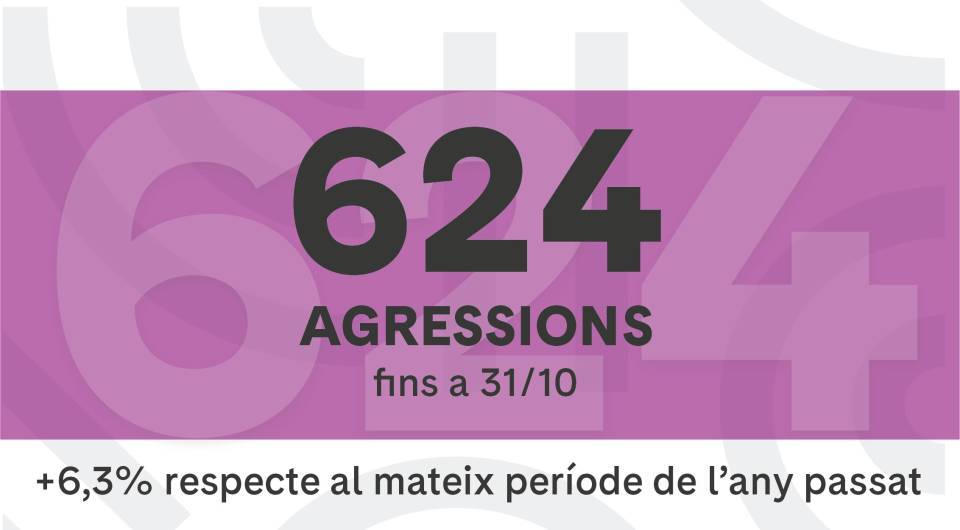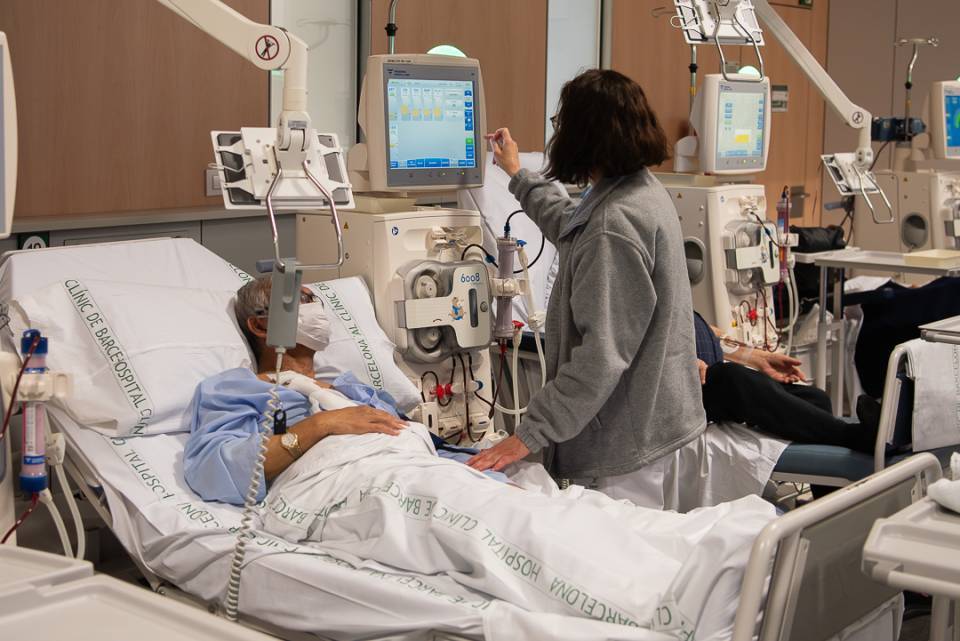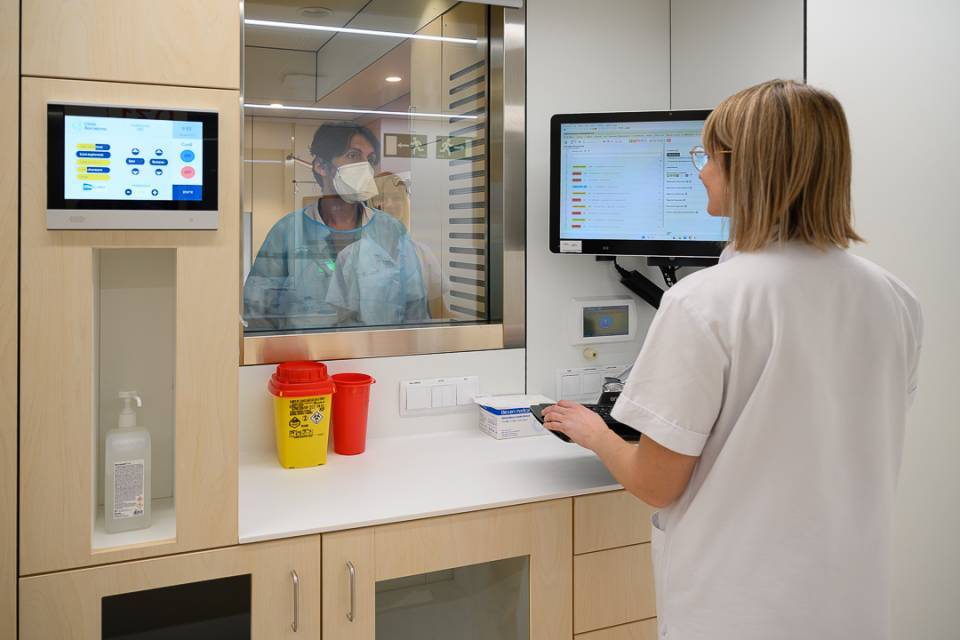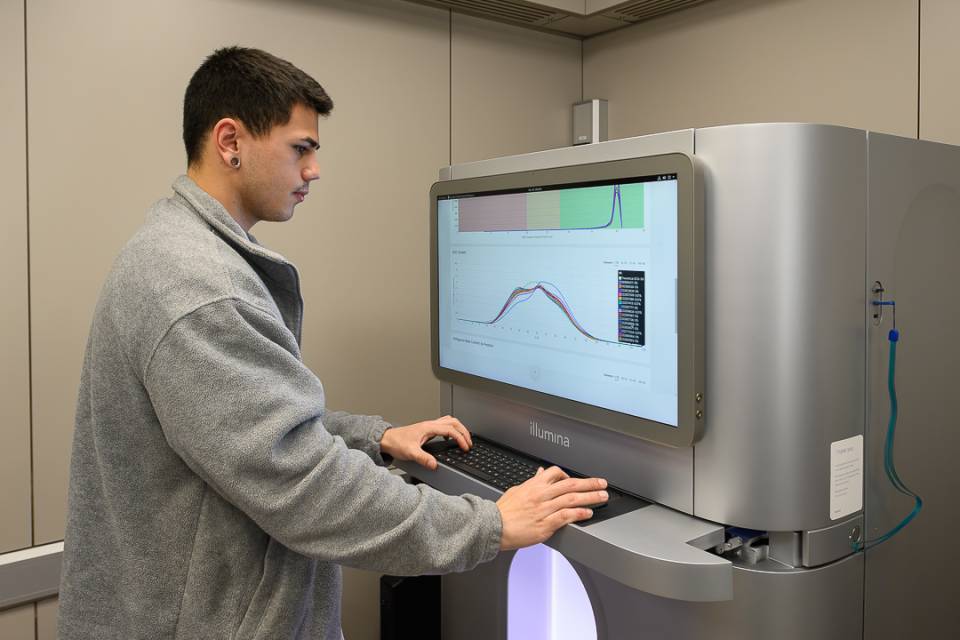Today, the Hospital Clínic Barcelona presented the report entitled ‘Sexual Violence Treated at the Hospital Clínic Barcelona A&E Department. 1 January – 31 October 2024’. The Clínic has treated 624 cases since the beginning of the year, an increase of 6,3% over last year’s period. The report was presented by Dr. Josep Maria Campistol, director general of the Hospital, and Dr. Lluïsa Garcia Esteve, psychiatrist and president of the Committee on Gender-Based Violence and Health. The Clínic is publishing this information to mark the International Day for the Elimination of Violence against Women, which is celebrated on 25 November. The report presented today concludes that it consolidates the Clínic’s comprehensive model, which provides continuity of care with a high level of engagement in the two outpatient follow-up programmes for the recovery from sequelae (mental health and sexually transmitted diseases). More specifically, 60% of the referred individuals have joined the programme for the prevention and treatment of psychological sequelae in victims of sexual assault (outpatient follow-up care). Meanwhile, 70% have joined the programme for the monitoring of infectious diseases.
The report presented today includes data on the victims and the assaults, and also on the use of the A&E Department for treatment, which allows us to analyse the need for resources in order to maintain a model of excellence.
The report also concludes that 44% of the assaults were committed on individuals under 25 years of age, and that 6.25% of the assaults on women were committed on girls aged 16 and 17. In the last 5 years, the Clínic has treated 2,726 cases of sexual assault in the A&E Department.
With regards to the type of sexual assault, the report highlights the fact that 57.5% of the women were raped (vaginally, anally and/or orally), but it should be noted that 29% do not remember. In men, 60.5% suffered anal and/or oral penetration, but 25% do not remember.
With regard to the place where the assault took place, 56% of the assaults on women were perpetrated in a home. Last year the figure was 49.7%. Whilst 14.6% of the assaults on women were perpetrated in public spaces, 10.8% occurred in nightlife venues (including cases in nightclub or bar bathrooms). Other places where assaults are committed include: cars, public transport, hotels, workplaces, etc.
Meanwhile, 3.2% of the assaults (n=20) were on homeless people. Of the total, 19 were women and 1 was a man. Of all the assaults on homeless people, 21% were gang assaults. Furthermore, 15 of the 19 (80%) homeless women were raped. The homeless population is, therefore, a high-risk group with special needs for accessing health follow-up and recovery programmes.
The report also includes sexual assaults involving more than one perpetrator. The report concludes that 9.7% (n=53) of the assaults on women were committed by more than one perpetrator (2, 3 or more perpetrators). In 19 of these cases, there were 3 or more perpetrators (35.8%).
A total of 63% of the women report having consumed alcohol at least 6 hours before the assault. Meanwhile, in 47% of assaults on women there are indicators that show that the assault occurred in a context of alcohol or drug intoxication, which could alter the state of consciousness.
One of the conclusions of the report is that a quarter of the women treated who are under the age of 45 have been raped by an acquaintance in an environment that could be considered safe.
The Clínic model of care for sexual violence
The Clínic Barcelona is the referral centre in the city of Barcelona for the treatment of victims of recent sexual assault who are over 16 years of age. The Clínic has a comprehensive care model and a protocol for urgent assistance and follow-up of the sequelae of sexual violence, aiming for recovery of health from ‘minute zero’ and ensuring subsequent continuity of care.
The comprehensive care model adopted by the Hospital Clínic Barcelona in cases of sexual violence is based on an accessible, coordinated and specialized response to offer support to survivors from the very outset. This model prioritizes immediate intervention with a service that functions 24 hours a day, guaranteeing the necessary heath, psychological and social care. Through a person-centred approach, it provides emergency medical and nursing care, such as sexually transmitted infections prophylaxis, emergency contraception, and the treatment of physical injuries, whilst providing emotional support and counselling to victims in a safe and confidential environment.
The Clínic model of care for sexual violence includes specific care to address the psychological sequelae and the prevention and treatment of infectious diseases. In the psychological field, continuous follow-up is provided in order to help manage the emotional and psychological impact of the trauma, with interventions tailored to each person's needs.
With regard to infectious diseases, the Clínic offers rigorous medical monitoring for the early detection and treatment of possible sexually transmitted infections (STIs). This includes regular diagnostic tests, access to prophylactic antiretroviral treatment and advice on sexual health. With this comprehensive follow-up, the Clínic ensures prolonged and multidisciplinary care that addresses both the physical and mental health consequences of sexual violence, promoting the full recovery of individuals affected by sexual violence.
One of the pillars of the model is interdisciplinary and inter-institutional collaboration (coordination with the Mossos d’Esquadra [Catalan Autonomous Police Force], the Guàrdia Urbana de Barcelona [Barcelona’s Municipal Police Force], the Institute of Legal Medicine and Forensic Sciences of Catalonia, and the Barcelona Circuit against Gender Violence). This holistic approach also incudes referral to long-term support services and awareness-raising to prevent re-victimization. With this model, the Hospital Clínic Barcelona is consolidating its position as a benchmark in the approach to sexual violence, committing itself to offering professional and specialized healthcare for this type of gender-based violence.




